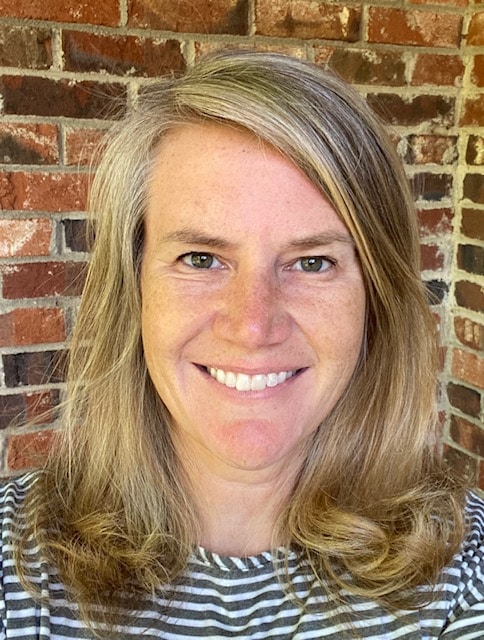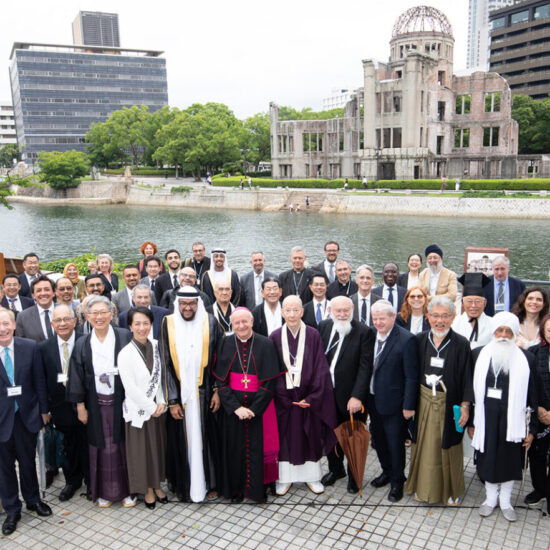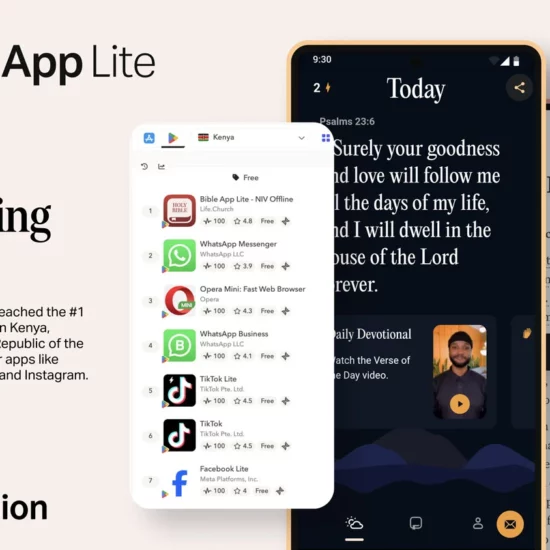
The year is 1995. You just walked out of a movie theater with a group of friends. Someone asks, “Hey, wasn’t that the same person that played [insert character name] in [insert movie title]?” Someone else replies, “No, you are thinking of [different actor].” And the debate would begin. An entire drive home or bite to eat afterward might be spent debating questions like these about the movie. My husband and I used to joke that he could tell who anyone was by just their voice. We would watch a commercial or animated movie, and he would immediately start asking me who was doing the voice-over.

Sarah Blackwell
Most of the time, it would take me two or three times through to get it. We would banter about my inability to recognize something so obvious to him, and then I would remind him of another time when I recognized someone’s face, and on we would go with our good-natured ribbing. Fast forward to the present with Google. And smartphones. And Siri. And Alexa. And suddenly all of these good-natured “quarrels” are resolved instantly. We barely are even given the time to wonder. No question ever lingers. Someone always ends up being right and the other wrong.
I think we used to be better about living with uncertainty. We may not have been able to answer the question about the actor and at some point, we would just move on. Agree to disagree and continue on with our relationships. We have lost, in this world of “instant certainty,” how to have good-natured disagreements and leave things unresolved at times. These banters back and forth often taught us how to navigate discussions where two parties were not on the same page.
Without this practice in low-stakes situations, we have become unable to handle more pressing issues without losing our minds. With easy access to so many “experts,” the conventional thought is that there must be only one right answer. Which, of course, depends on who you ask. Since we can consult “authorities” on every subject, we are less likely to hear out another ordinary person or even share thoughts we have held privately. All this devolves into a lack of ability to debate even trivial things with a spirit of civility or good-natured jest.
Additionally, the need for instant certainty makes us less likely to sit and dwell on the really hard questions of our faith. We are so used to there being one answer to things that we make up tidy responses where none should exist. We meet people’s deep questioning with platitudes and trite sayings. Instead of really being with someone wondering about a deep loss, we ask “Bible Siri” and come back with “everything happens for a reason” or “God works all things for good” rather than sitting in the uncertainty. Thus, we avoid steering into the hard stuff and do not allow ourselves to dwell on or contemplate things that might form us spiritually closer to the likeness of Christ. We do not wonder as we wander.
My son turned twelve the day that the schools closed in March of 2020. By some good fortune of timing, one of the gifts that we had selected for his birthday was a portable hammock. During the height of the pandemic, when we were home all the time, one of the family members could often be found in it as it hung between two small trees in the corner of our yard. The hammock became a place of solitude in the midst of a house that was always full and sometimes noisy (picture MS jazz band and fourth-grade recorder lessons on Zoom). In the solitude that became “hammock time,” a door was also reopened in me to wonder.
I watched the shape of the leaves move in the wind, the woodpecker looking for insects, and the clouds drift across the sky. I wondered how long these two trees had been here and what my neighborhood looked like before it was developed and why the leaves were shaped that way and what the birds and squirrels thought of me. For the first time in a decade, I took none of these questions to Google. I wondered them just to wonder them. In giving that permission to myself, I recognized God’s voice saying that it was okay not to have the answers.
In a world where we have so much information at our fingertips, not knowing is seen as a sign of weakness. Faith is often defined by a certain set of core things that you know, can recount, and better well be the right things or you are probably a heretic. We have it all wrong, though. Faith is having the big questions and the big doubts and believing anyway. Faith is being okay with not knowing. Faith is an appreciation of the small piece you play in this overwhelming and amazing creation. Faith is not beliefs held in certainty. Faith is belief in the presence of doubt.

BeQa shavidze / Unsplash
In order to wonder, we must observe, and observation takes time. It takes a slowness and an intention that is not rewarded in our modern world. Our wonder is our worship. It is saying, “God, you are so amazingly glorious and complex that no amount of earthly words or Bible study I could do would ever begin to unpack the expression of your majesty.” It is our way of noticing and appreciating the intricacies of a system so complex and beautiful that we could spend the next millennia studying it and never fully grasp all the parts. Our wonder allows us to spend time with God in a way that is not transactional – that does not rely on God answering us or fulfilling some heart’s desire. Our wonder draws us into the presence of God. It teaches us to abide.
We spend so much of our childhoods in a state of wonder and yet somewhere along the line we tamp that down and replace it by only valuing knowing. Then we ask why children’s hearts are so light and their dispositions are so hopeful? They are in tune with asking the whys of the world without expecting to understand it all. When a young child asks why the sky is blue, they do not really want to know about tiny molecules scattering light. They are noticing, appreciating, and valuing the beauty that they see. They are acknowledging the majesty and the mystery. They get to dream up all the questions and not be held accountable for any of the answers.
My friend’s daughter used to be the kind of kid that asked big questions – the kind of mind-blowing ones that shake you to the core. At one point, unable to know even where to start in response to such deep thought by a four-year-old, her mom responded, “Well, we will just have to put that one on our list of things to ask God one day.” To that child, it was a perfectly acceptable answer and one that we should embrace as well. We, too, can be spiritually formed by asking questions and being okay with uncertainty. As a friend of mine said, “I’m okay with some gray in my life.” Our questions are an acknowledgment of God’s power. When we rely less on ourselves and our knowledge, we rely more on God’s love and provision.
As we seek ways to be spiritually formed to the likeness of Christ, find your own way to have some “hammock time.” Jesus often pulled away from the crowds to be refreshed in solitude. Jesus also noticed the small things around him – a touch of his garment, a small bird, petals on a flower, a fig tree.
How can we re-engage our sense of wonder and worship?
1) Start in solitude. Commit some time to experience solitude either on a walk, at a special private lunch spot, in a chair on a balcony, on a park bench, or in a hammock if room exists. Remove the distractions and the answers and be amazed by the intricacies of the world around you. What do you notice that you have not before?
2) Meditate on the mystics. Christian history is full of writers who took the time to observe and wonder. Writings by Julian of Norwich or St. Francis of Assisi can lead us to think more deeply about common elements of creation. John Muir turns the natural world into his cathedral. The romantic poets like William Wordsworth bring to life the countryside. Many more contemporary writers also stir this sense of wonder like Wendell Berry, Annie Dillard, and the poetry of Mary Oliver. How do the writings of others help you to notice things in a deeper way?
3) Attempt some artistry. Use your phone to take pictures of elements of creation. Post your favorites to social media with a call to wonder. Sketch something that catches your eye. The unique and the mundane can both open our eyes to the genius of the design of creation. Closely examine one element from God’s creation like an apple, a squirrel, or an acorn. What theological lessons can we observe from this item?
4) Chill with a child. If you do not have children or grandchildren of your own to take for a ramble through the woods or even just down the street, consider volunteering to help with children in your faith community. Children have an unfiltered sense of wonder that can prompt our own musings. Ask them deep wondering questions to give them permission to ask their own.
5) Write your wonderings. Journal about your questions and things you are not certain about. Write a letter to a trusted family member or friend where you express some of your deep thoughts. Turn these thoughts into a poem or song lyrics to meditate upon.
When we feel the pace of the world quickening again, it is our obligation to fight the urge to keep up. Our radical act of non-conformity that Paul writes about in Romans 12:2 can simply be the transformations that take place when we are not beholden to speed and certainty. So, make sure you let Siri or Alexa have their own Sabbath and allow wonder to creep back into your life. Do some actual or metaphorical “hammock sitting.” In slowing, we observe. In noticing, we value. In wondering, we believe.
Sarah Blackwell is a contributing writer at Word&Way and a 2020 graduate of the Gardner-Webb School of Divinity. She is a former deacon and volunteers with youth and young adults at Providence Baptist Church in Charlotte, North Carolina. She still cannot tell who is doing the voiceovers for commercials. Follow her writings at proximitytolove.org.






